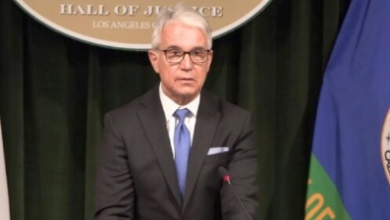Shocking History Revealed: Pearl Harbor How Past Conspiracy Theories Shaped America’s Response to Crises

In the two months following the Pearl Harbor Hamas terrorist attack on Israel, the United States has witnessed a surge in antisemitic, anti-Palestinian, and Islamophobic incidents. These occurrences serve as a painful reminder of a tendency among some Americans to attribute blame to entire identity groups in the aftermath of national or international crises, irrespective of individual actions or beliefs. This kind of crude stereotyping often taps into and revives deeper conspiratorial thinking, suggesting that certain Americans may have divided loyalties, posing an inherent threat to national security.
READ: Hamas’ Unprecedented Attack on Israel: 5 Key Takeaways
To gain a better understanding of the present prejudice and violence, it is crucial to revisit a pivotal moment in history when scapegoating, conspiracy theories, and a misguided national security rationale converged, leading to one of the most regrettable acts of political repression in American history.
Pearl Harbor
On December 7, 1941, Imperial Japan attacked the U.S. naval base at Pearl Harbor. In a subsequent speech to Congress, President Franklin D. Roosevelt carefully shaped the narrative, asserting that Japan had acted “suddenly and deliberately” and “without warning” in a “premeditated invasion.”
Despite warnings from some Americans about the possibility of such an attack, fueled by conspiracy theories over the previous four decades regarding the danger of Japan and the perceived disloyalty of Japanese immigrants in the U.S., the aftermath of Pearl Harbor saw the proliferation of bigoted and false ideas about Japanese and Asian Americans. These misguided notions contributed to the unjust incarceration of over 120,000 Japanese Americans, even as the nation rallied in a unified effort to uphold democracy during the war.
Similar to the present, moments of crisis in history have allowed deep-seated stereotypes to thrive, influencing decisions made in the name of national security. Unfounded suspicions of Japanese immigrants’ disloyalty had roots dating back to the early 20th century when discriminatory legislation was promoted in response to Japanese immigrants becoming prominent low-paid agricultural workers on the U.S. West Coast.
These prejudiced beliefs gained momentum after Japan’s victory in the Russo-Japanese War in 1905, leading to speculation about an inevitable conflict with the U.S. Fearful narratives emerged, suggesting that Japanese immigrants were secretly preparing for an attack, fostering a climate of mistrust. The unjust segregation of Japanese pupils in a 1906 decision by the San Francisco school board and subsequent rumors of Japanese espionage further fueled tensions.
Even during World War I, unfounded concerns persisted about Japanese immigrants, with baseless rumors of impending invasion and suspicions about their loyalty. The consequences of these conspiracy theories were evident in subsequent legal restrictions and discriminatory measures against Japanese immigrants, culminating in the Johnson-Reed National Origins Act of 1924, which banned their entry into the U.S.
The legacy of these discriminatory beliefs persisted into World War II, influencing the response to the Pearl Harbor attacks. Renewed conspiracies led to political pressure, resulting in Executive Order 9066 and the forced incarceration of Japanese Americans, overturning basic civil rights protections.
This historical pattern demonstrates that crises amplify longstanding conspiratorial thinking, harming vulnerable groups. Similar dynamics have persisted into the 21st century, as seen in the post-9/11 surveillance of Muslim Americans and the rise of anti-Asian sentiment during the COVID-19 pandemic.
Understanding this history is crucial in confronting and learning from the past, resisting impulsive reactions, and distinguishing legitimate security concerns from those rooted in bigotry and conspiratorial thinking. Failing to do so jeopardizes national security and threatens core American values and rights.




